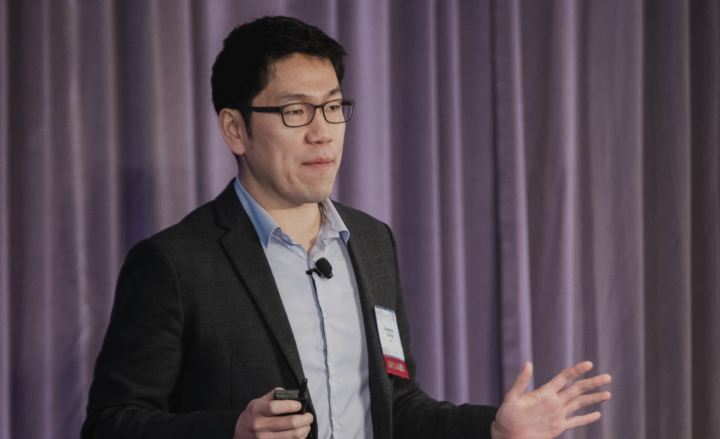
Kwanghun Chung, an associate professor in MIT’s Picower Institute for Learning and Memory, the Department of Chemical Engineering and the Institute for Medical Engineering and Science, has won a Presidential Early Career Award for Scientists and Engineers, the White House announced.
A PECASE is the nation’s highest honor for young scientists and engineers.
“Established in 1996, the PECASE acknowledges the contributions scientists and engineers have made to the advancement of science, technology, engineering, and mathematics (STEM) education and to community service as demonstrated by scientific leadership, public education, and community outreach,” the Trump Administration said in its statement. “The White House Office of Science and Technology Policy coordinates the PECASE with participating departments and agencies.”
Chung’s nomination, recognizing a series of innovations in tissue processing that has allowed for revolutionary new views of the brain at multiple scales, came from the U.S. Department of Health and Human Services.
Chung, who is also appointed in the Department of Brain and Cognitive Sciences, said he credits his whole team for the award.
“I am extremely honored and grateful for this recognition,” he said. “This award was only possible thanks to my team’s exceptional work and dedication. I’m infinitely grateful to be a part of such an amazing team and we hope our research can contribute to expedite discoveries and ultimately, improve human health.
About Kwanghun Chung
Chung received his B.S. in Chemical Engineering from Seoul National University in 2005, and then moved to Georgia Institute of Technology for his Ph.D. training under the mentorship of Dr. Hang Lu, where he developed automated and integrated microsystems for high-throughput imaging, molecular/behavioral phenotyping, and cell microsurgery of a broad range of living systems.
After Georgia Tech, Chung joined the Karl Deisseroth Lab at Stanford University for post-doctoral training in 2010, where he invented a novel technology termed CLARITY, which enables system-wide structural and molecular analysis of large-scale intact biological samples. In 2013, Dr. Chung established his independent group at MIT and has been leading an interdisciplinary team to develop and apply novel technologies for holistic understanding of large-scale complex biological systems.
He has continued to invent a series of innovative tissue engineering technologies including MAP, SWITCH, Stochastic Electrotransport and most recently SHIELD.
These tools enable neuroscientists to clear brain tissue, enlarge it, label and preserve it so that it can be imaged to reveal not only physical structure, but also protein expression. Last year he and collaborators earned a major NIH grant to make the most comprehensive map ever of the entire human brain.
